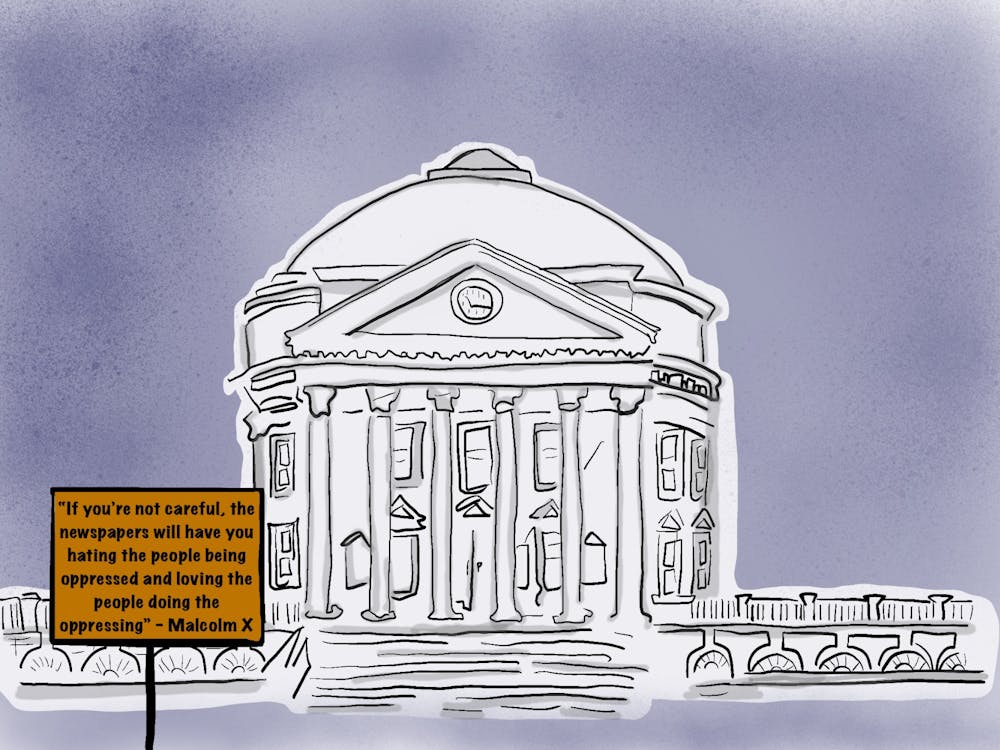The Washington Post on Tuesday revealed the University and state officials attempted to influence the conclusions of a federal investigation into sexual violence at U.Va. According to the Post, Gov. Terry McAuliffe urged Secretary of Education Arne Duncan to allow the University to review the findings of the Education Department’s investigation before their release, while Sens. Mark Warner and Tim Kaine followed up with a letter repeating McAuliffe’s request. University President Teresa Sullivan also wrote to the department following the release of the Office for Civil Rights’ initial 39-page report to U.Va. administrators. Her letter questioned the accuracy of the initial report, after which point a 26-page report was released to the public in September.
Neither the original report nor Sullivan’s letter has been released to the public. The University cited state law that shields attorney work product and presidential correspondence in withholding these documents, according to the Post. When asked by The Cavalier Daily, the Office of University Communications provided a statement citing several discussions between University officials and the OCR to provide information and reach a resolution about the report.
While the Post’s portrayal labels these correspondences an “intense fight,” we should not be so quick to vilify the state officials and U.Va. administrators who questioned the OCR’s methods. It seems unlikely that the attempt to intervene in this review was unique to our school out of the 146 schools nationwide being investigated. Catherine Lhamon, the department’s assistant secretary for civil rights, told the Post that pushback from schools being reviewed is not unusual.
What is unique to our school, however, is the intense media controversy that overlapped with the OCR’s investigation. In his letter, McAuliffe mentioned the effects of Rolling Stone’s now-detracted article regarding sexual assault at U.Va., noting that information the department was collecting after November 2014 “could have been influenced by the atmosphere unfairly created on campus by that false article.”
After Rolling Stone so disastrously misrepresented the University’s approach to sexual misconduct, it’s a small wonder administrators, Board of Visitors members and state officials would want prior review of the OCR’s report, and would be hyper-vigilant about accuracy questions. Rolling Stone’s failure undoubtedly gave way to paranoia on the part of higher-ups with regard to public relations and misrepresentations of our school — and with good reason.
Moreover, McAuliffe’s point should not be disregarded. The Education Department’s investigation overlapped with developments in the Rolling Stone scandal, including the release of the article and its retraction — and the many developments in-between and after those events. After the OCR released its report and the Association of American Universities released the results of a campus climate survey on sexual misconduct at U.Va., we mentioned the possibility that Rolling Stone’s article influenced student responses to questions about sexual assault. The article created a warped atmosphere on Grounds that could easily have shifted student perceptions of sexual misconduct adjudication, and that is something worth taking into account.
Of course, it would be naive to ignore the public relations implications of the OCR report. A desire to maintain — or perhaps, not further damage — U.Va.’s reputation likely fueled these attempts to intervene as well, especially in light of the three high-profile controversies of the last academic school year. It appears from the information available that the Education Department did not yield to numerous requests from the University. The University was unhappy with the OCR report and hoped the OCR would change its findings, Lhamon told the Post. And while we don’t know what evidentiary changes were made between the 39-page review and the 26-page one, Lhamon said that the ultimate findings remained unchanged.
Indeed, the final report did not hold back, saying that prior to the University’s revision of its sexual misconduct policy it lacked prompt and equitable responses to certain reports of sexual assault. To its credit, the Education Department remained relatively unswayed by pleas for a kinder process. It is important for the public to know how the University engaged with state and federal officials during the investigation. But, given the information we have, there is no need to vilify attempts to intervene, especially on the heels of an unwarranted scandal.




